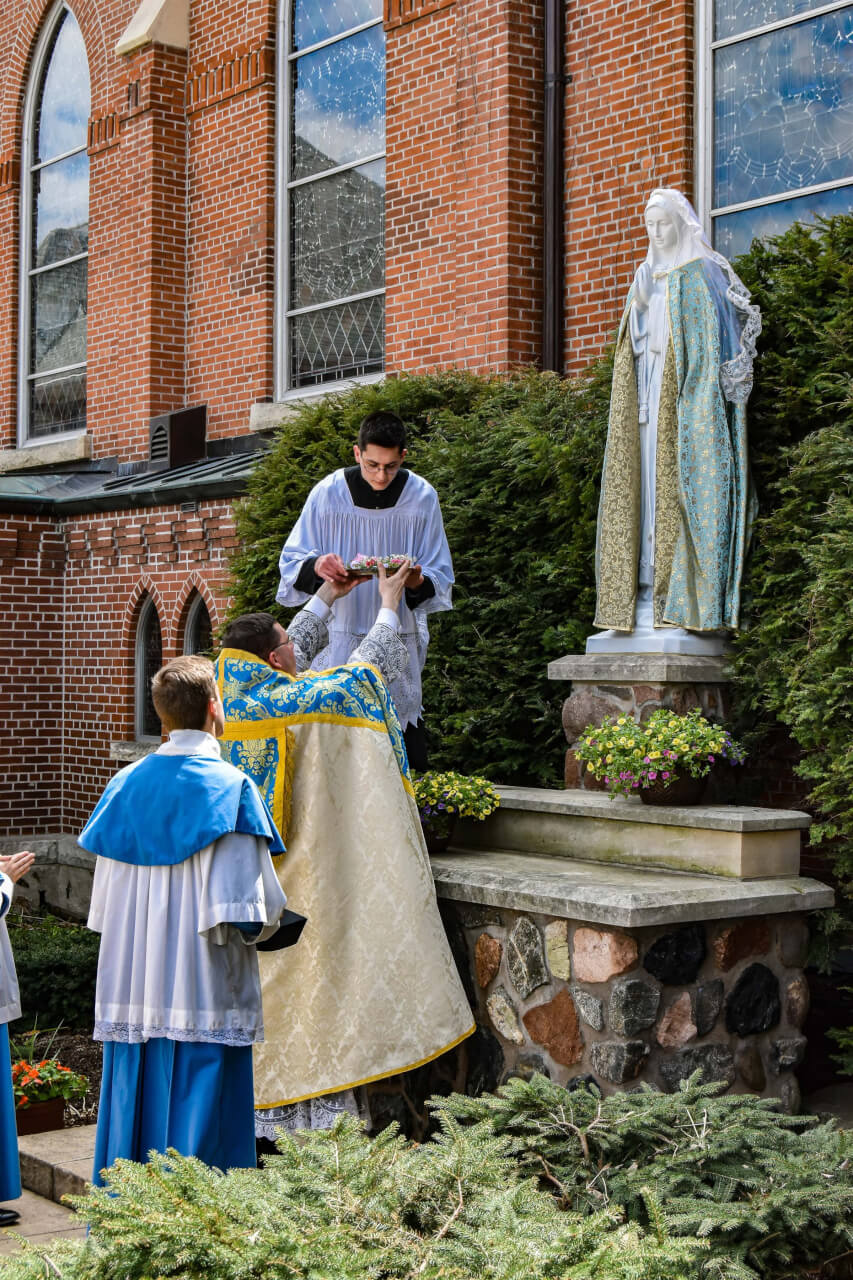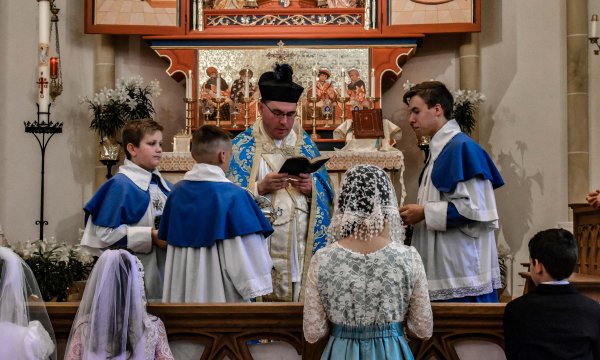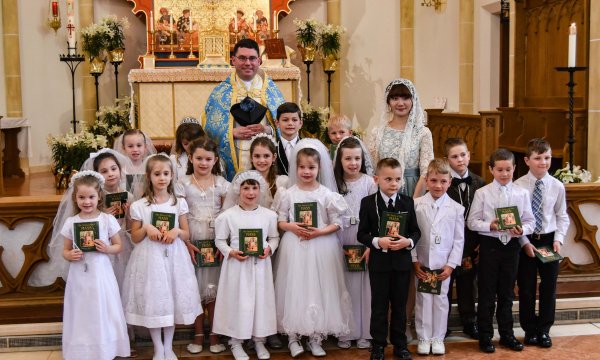Melbourne Latin Mass * The Mass in Latin in Melbourne Australia * The Novus Ordo Mass in Latin * The Roman Rite * Melbourne * Latin Novus Ordo * Tridentine Rite * Classical Roman Rite * Melbourne Gregorian Chant * Melbourne * Ad orientem * Melbourne * The Latin Mass * Melbourne * Extraordinary Form of the Roman Rite * Ordinary Form of the Roman Rite * Liturgical Renewal * Liturgical Reform * * The Glorificamus Society: promoting Reverence, the Sacred and Beauty in Catholic Liturgy *
Wednesday, 25 December 2019
Wednesday, 4 December 2019
Wednesday, 27 November 2019
Hat tip: Lizann “why I’m staying”
Why I'm staying
Ever since the Boston Globe broke wide open the child sex abuse scandal in the Catholic Church in 2002, it is been difficult for Catholics to defend why we remain in the Church. Who would want to be part of an organization that supports and hides such horrific crimes against children? Millions of Catholics left the Church – millions stayed. Those who stayed were not supporters of criminals. They were being faithful to the Church that holds the fullness of Truth, as much as they possibly could. In spite of name calling and harassment by family and friends, co-workers and even strangers. They held on, things died down, and we thought the worst was over.
Fast forward to 2018. Now we are seeing the true breadth and depth of the sexual sins that have infiltrated the Church. Now we know that it's not just priests with altar boys, it's Monsignors with seminarians, it's Bishops with new young priests…..it's Cardinals with their own family. Truly enough to make you physically sick to consider that THESE are the men who have been entrusted with the one and only Church given to us by Almighty God – the Bride of Christ. This is how they treat her, this is how we have been betrayed, and used, and lied to. For generations.
So why am I staying? Why would I have in the deepest parts of my soul and heart to want nothing more than TO stay?
Because this is where Truth lives. In spite of the slime, the depravity, the criminality, the sin, the demonic, the lies, the deception, the abuse — all done by sinful men who don't believe in God or His Church (for if they did, they surely would not be doing what they have done) TRUTH prevails. Truth always prevails.
Satan wants nothing more than to see the Bride of Christ sullied and pushed in the mud. He laughs when souls leave her behind because of the sins of men. He rejoices when headlines and comboxes fill with vile and hateful commentary about her. He lives to see as many souls flee from Truth as he can possibly influence.
But I'm not going to let that happen — not on my watch. I REFUSE to be bullied by those who no longer believe, or who never believed in the first place. I refuse to be angered by criminals to the point of turning my back on the most incredible gift ever given to mankind – the gift of the Holy Catholic Church. I refuse to play along with Satan's games and become so distracted by the sins of others that I lose sight of my own.
Those who have pushed Our Bride into the dirt — THEY can leave Our Father's House.
As for me, I stay because Catholic is what I am. Not something I do. I stay because this is where Truth lives. And I don't ever want to live anywhere else.
Tuesday, 12 November 2019
Wednesday, 6 November 2019
Saturday, 13 July 2019
Wednesday, 12 June 2019
If a Thing’s Worth Doing, It’s Worth Doing Extravagantly - OnePeterFive
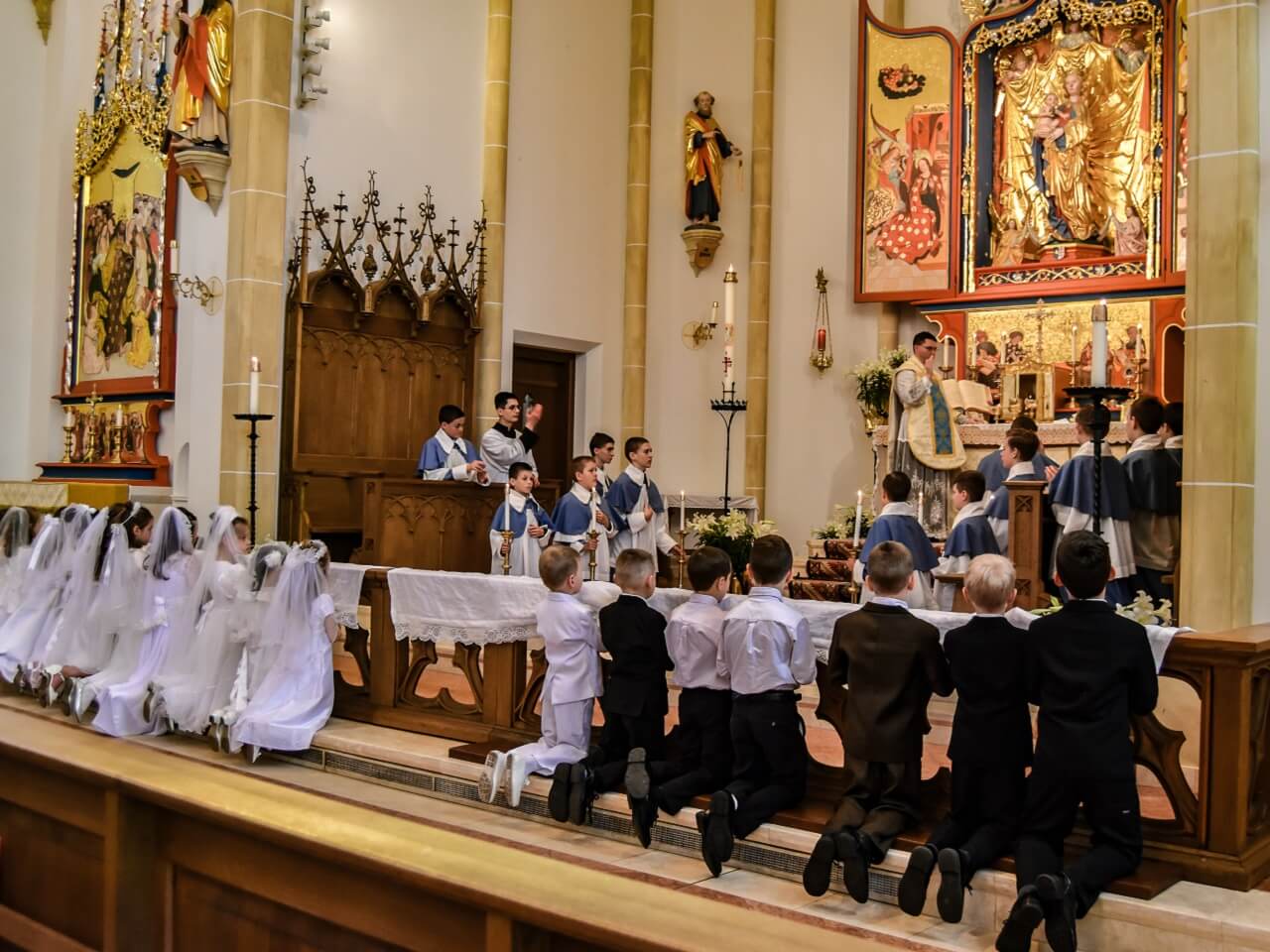
If a Thing's Worth Doing, It's Worth Doing Extravagantly
- 3.39kShares
- 3.39k
We all know the old saying: "If a thing's worth doing, it's worth doing badly." We take comfort in the sentiment, since far too often in this life we are compelled, either by circumstances beyond our control, or by our own inherent weaknesses and limitations, to settle for results less than ideal. We did what we could; we, and others, are still better for it.
But in our society, there is also a temptation to do less than we actually could do; to think that people will walk away from what is too grand or too demanding; to insist that we should keep things modest, manageable, and non-invasive. It seems to me that this attitude has pretty much taken over in the Catholic Church. Parishes go to enormous lengths to make liturgy comfortable; inoffensive; undemanding; and, above all, not too time-consuming. Rare is the liturgy that surpasses an hour on the clock.
In this way, the adage "don't let the best be enemy of the good" turns into "don't aim for the best; aim for good enough."
I have been thinking about this problem a great deal recently, in light of my experience with the pre-1955 Holy Week. On Palm Sunday and during the Triduum, each liturgy was far longer than any I had ever attended before (whether of the 1962 missal or the 1969), and yet each seemed just the right length for what "had" to happen. I've subsequently talked or corresponded with others who attended the same rites elsewhere, and we all had the same impression: these liturgies unfolded on such a grand scale, and had such a power of capturing one's attention, that duration stopped mattering. Instead of being prey to the hegemony of the clock, the rites dominated time, took generously of it, helped themselves to as much as they needed. Those who experienced them wouldn't have wanted them any shorter.
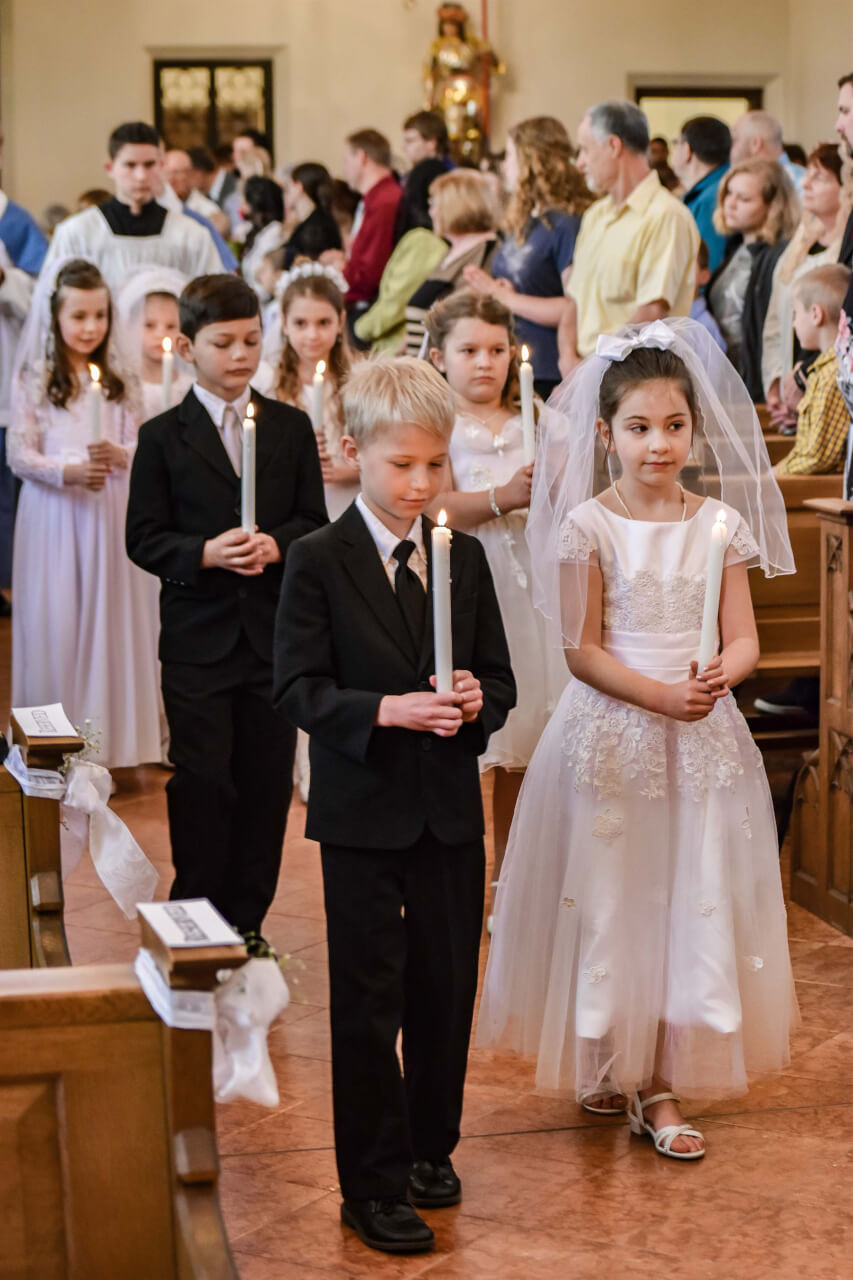
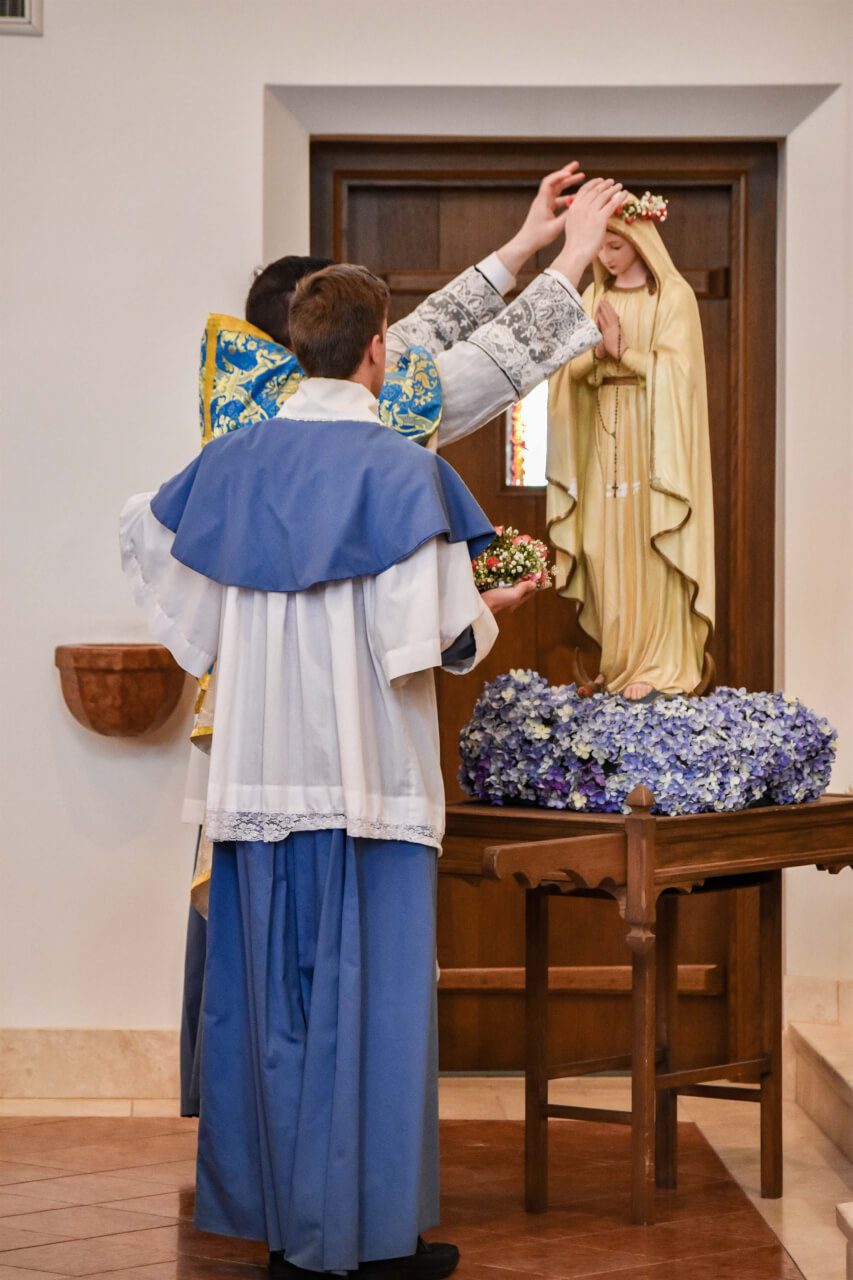 We also agreed that the rites accomplished this minor miracle (at least for modern Western souls) by a stubborn method: excess. There was always a great deal of material to be sung, whether it was two lessons and two tracts on Good Friday or twelve readings on Holy Saturday. Usually the old Mass displays a certain terseness or compactness as compared with the sprawling verbosity of the Novus Ordo, but in these days of Holy Week, it was different: superabundance was the rule, and it was absolutely appropriate.
We also agreed that the rites accomplished this minor miracle (at least for modern Western souls) by a stubborn method: excess. There was always a great deal of material to be sung, whether it was two lessons and two tracts on Good Friday or twelve readings on Holy Saturday. Usually the old Mass displays a certain terseness or compactness as compared with the sprawling verbosity of the Novus Ordo, but in these days of Holy Week, it was different: superabundance was the rule, and it was absolutely appropriate.
I was thinking about these things again when I had the privilege of attending the Mass with First Holy Communions at the local oratory of the Institute of Christ the King Sovereign Priest. The Institute's unofficial motto could be "There's no success like excess." Instead of making the liturgy kiddy-friendly and bite-sized, with artsy-crafty banners and Hallmark sentiments, the liturgy was solemn to the hilt, replete with lofty sacred music, majestic in ceremony, with more "going on" than at any such occasion I had ever seen — not only the First Communion Mass, which started with a procession in which the communicants themselves took part, but also a Marian procession with a triple May crowning (that is, three statues of Our Lady crowned with flowers) and an investiture with the Brown Scapular. It was a liturgy that, from its fullness and leisurely pace, had a "punch" similar to that of the Holy Week rites. In short, it exemplified the maximalist maxim: "If a thing's worth doing, it's worth doing extravagantly."

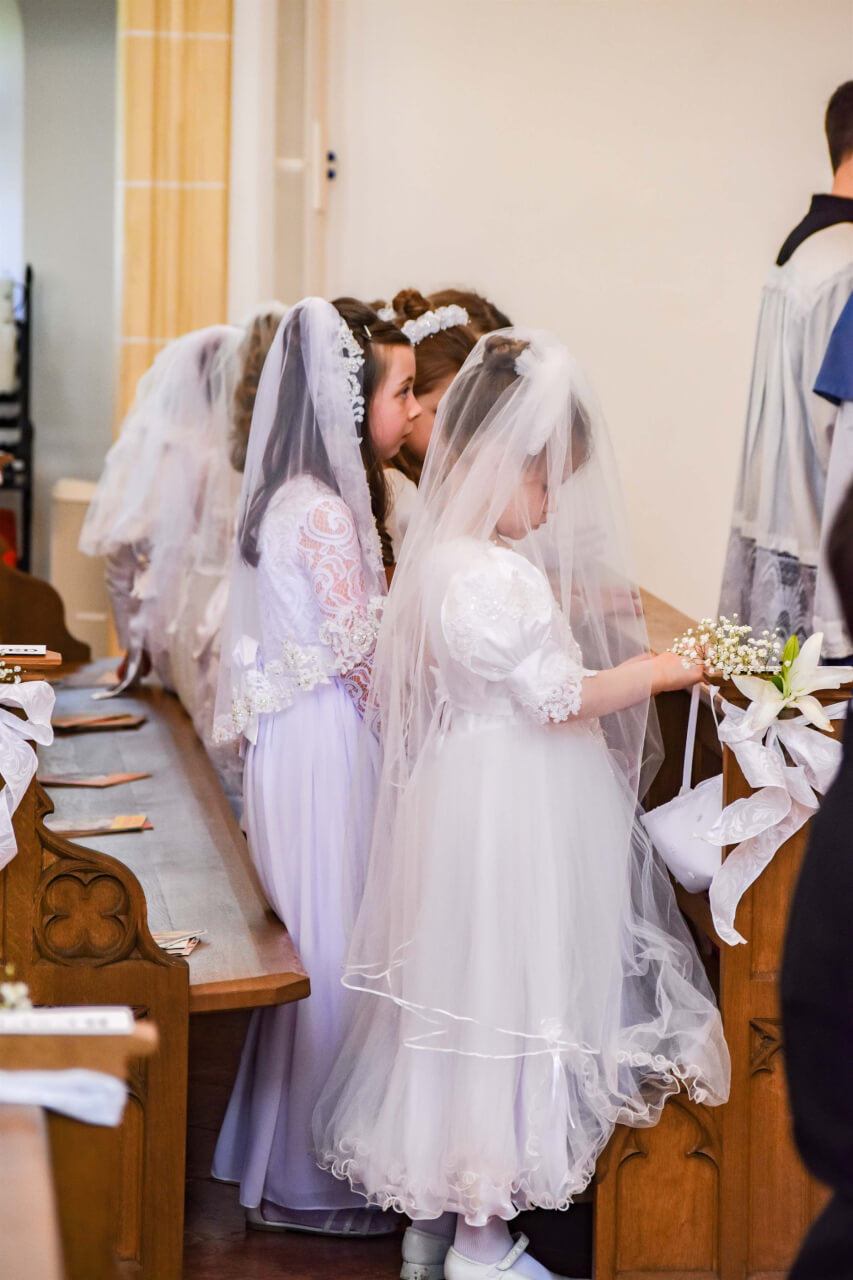

I could only think back to my own First Communion, which was a low-key affair involving wafers placed into hands, accompanied by sappy music. Liturgically, it was a wash-out, and it left no impression on me of the awesomeness of this moment. I realize that little children, at least most of them, will not yet be in a position to fathom the awesomeness of the gift of Our Lord, but it seems to me past all reasonable doubt that the children in the Oratory would have felt, by the splendor surrounding them, that something profoundly important, momentous, glorious, was taking place in their lives — and that they would carry in their hearts a radiant memory of that day.
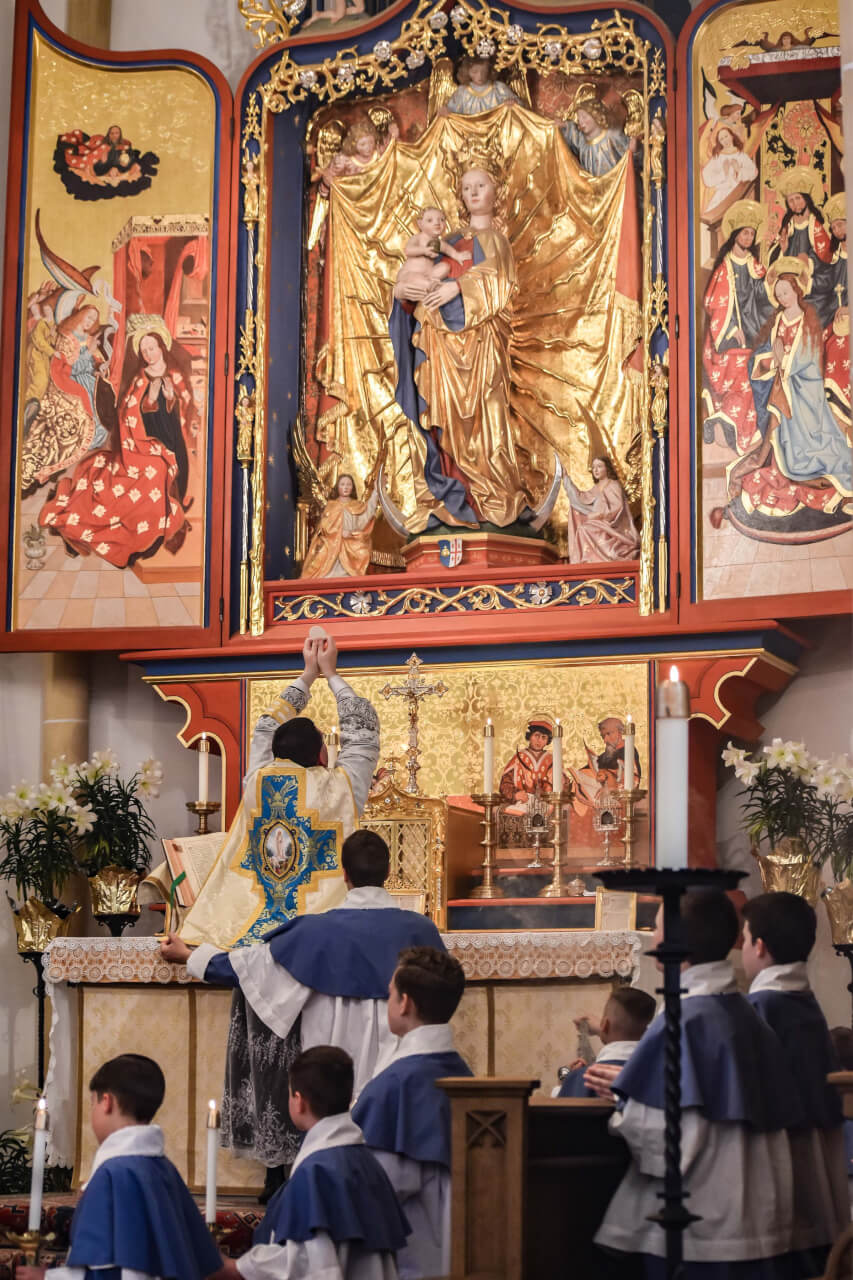
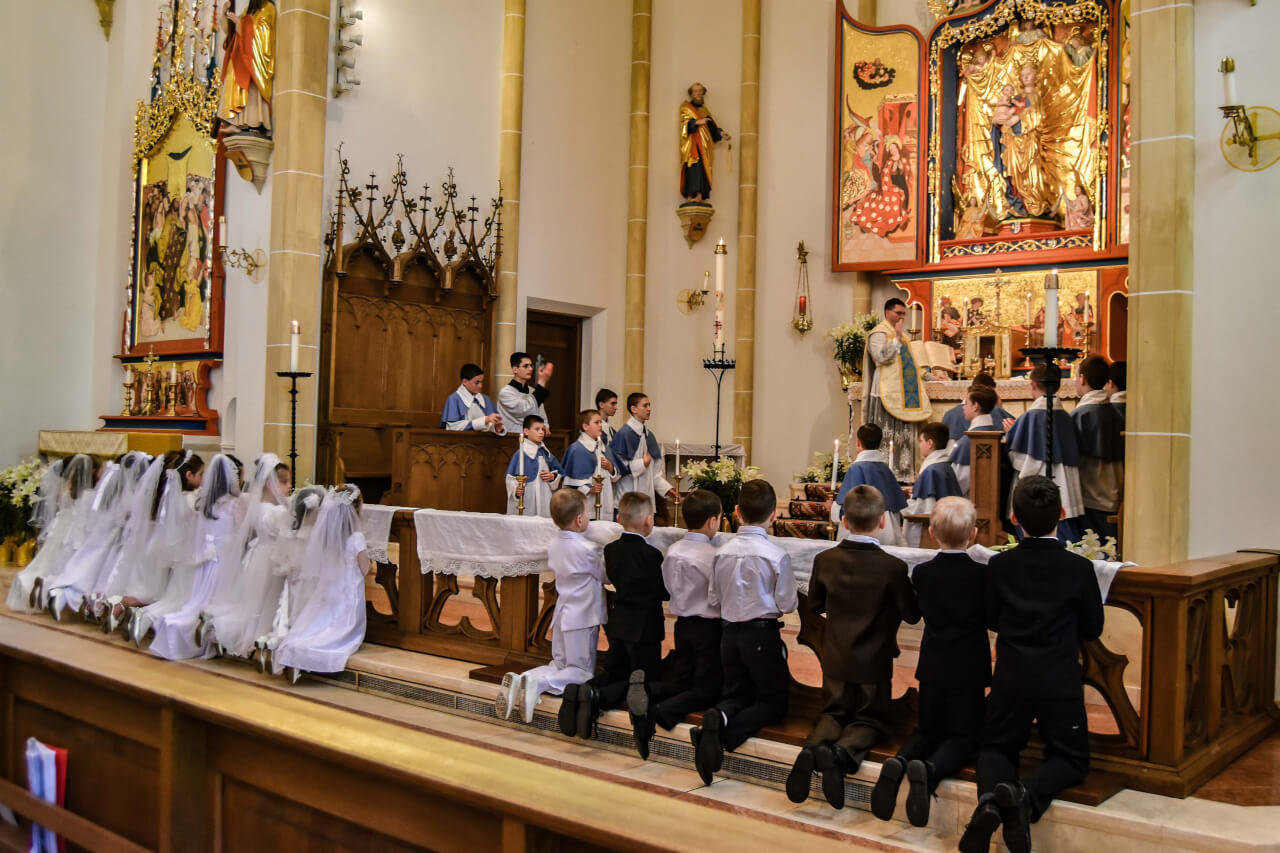
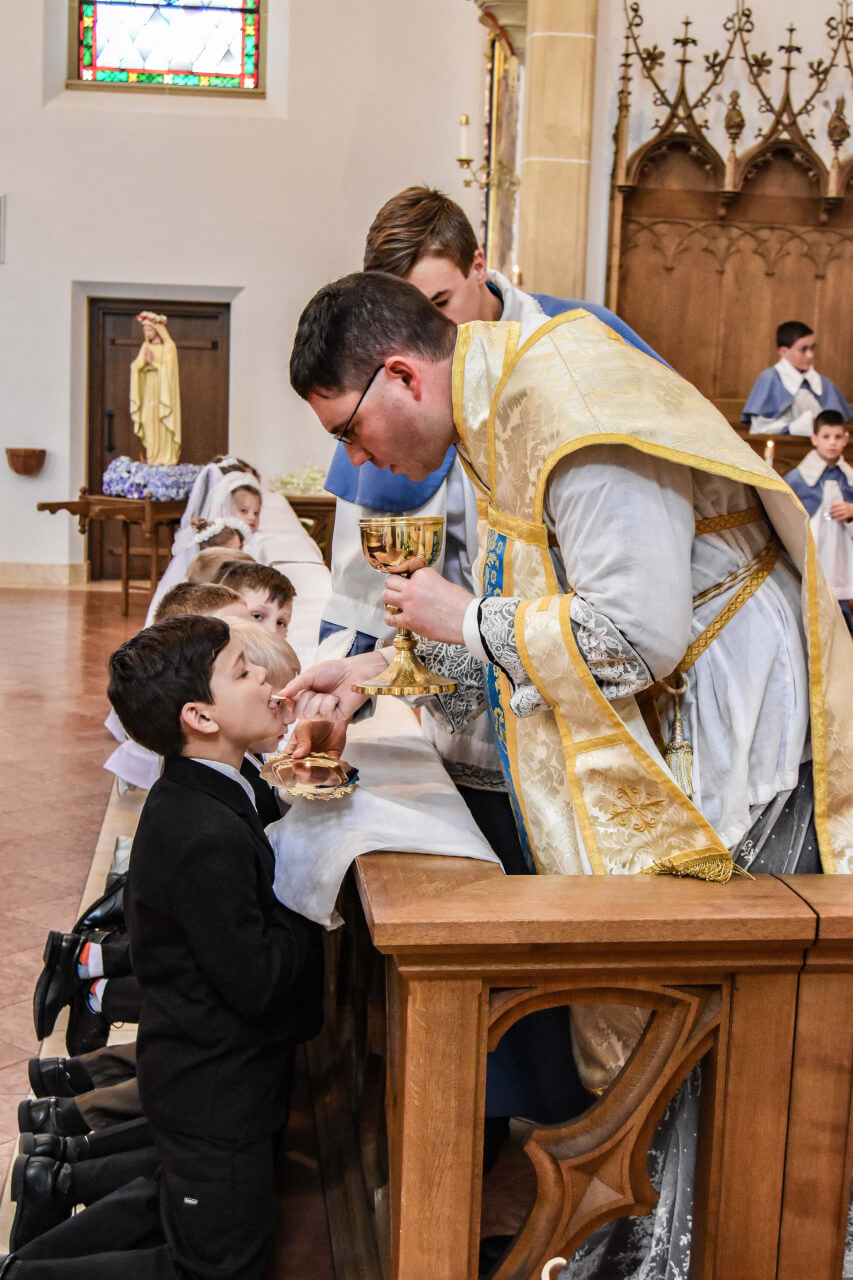 Put simply, if we want Catholics to take their faith seriously, they need to be provided with serious experiences of that faith — experiences saturated with reverence and beauty. Nothing less is worthy of the God of glory whom all creation adores, especially the heavenly hierarchies of angelic beings; nothing less is appropriate to our dignity as sons alive in the Son; nothing less will succeed in carving a permanent groove in the hardness of our fallen human nature. What we need is not less liturgy, less time in church, a less demanding religion, but the contrary: more liturgy, more time in church, more demands from our religion. By taking our time, lavishing it on God, lingering in worship, cutting no corners, seizing hold of the means of sanctification, we learn the proper hierarchy of goods and values. We take on the yoke of Christ and get used to it, instead of easing it off as quickly as we can.
Put simply, if we want Catholics to take their faith seriously, they need to be provided with serious experiences of that faith — experiences saturated with reverence and beauty. Nothing less is worthy of the God of glory whom all creation adores, especially the heavenly hierarchies of angelic beings; nothing less is appropriate to our dignity as sons alive in the Son; nothing less will succeed in carving a permanent groove in the hardness of our fallen human nature. What we need is not less liturgy, less time in church, a less demanding religion, but the contrary: more liturgy, more time in church, more demands from our religion. By taking our time, lavishing it on God, lingering in worship, cutting no corners, seizing hold of the means of sanctification, we learn the proper hierarchy of goods and values. We take on the yoke of Christ and get used to it, instead of easing it off as quickly as we can.

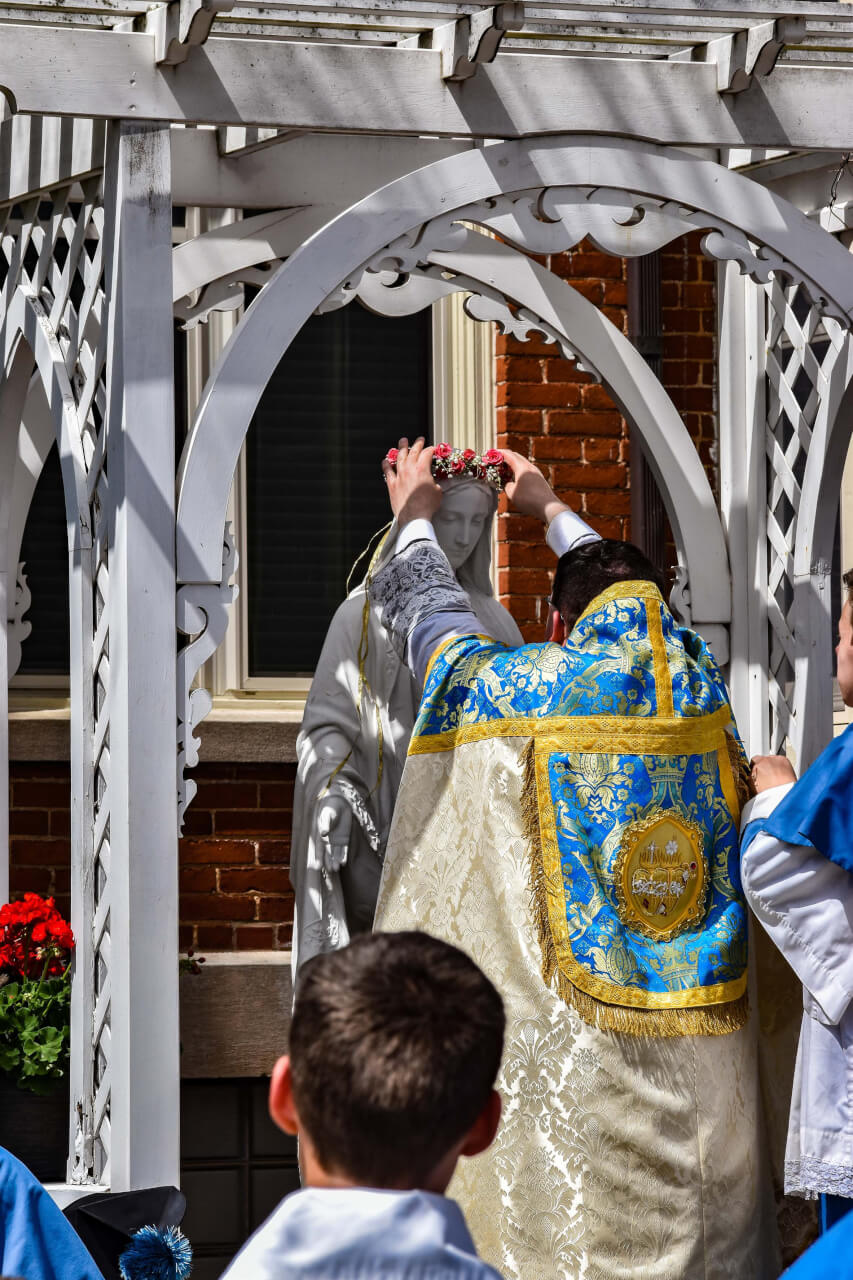
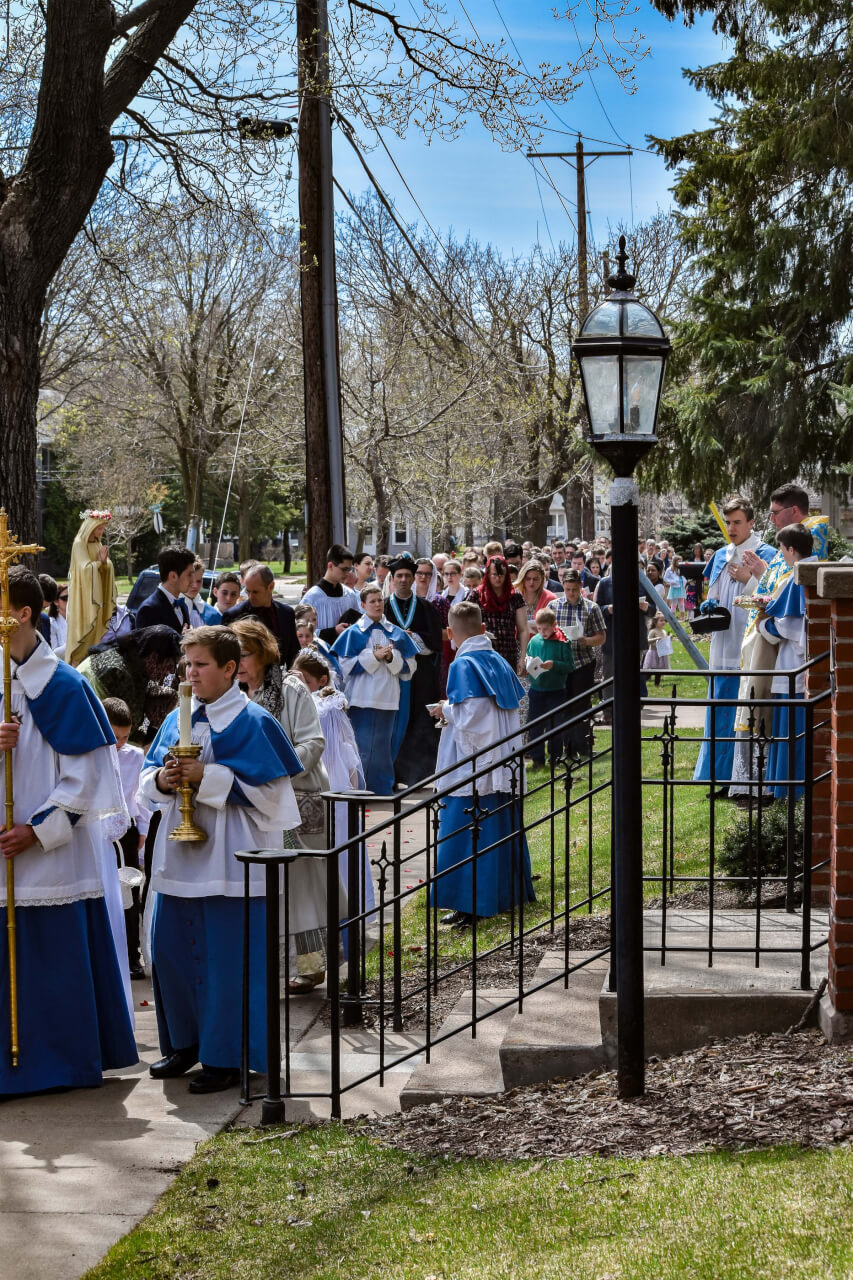
This is what I saw in the First Holy Communion Mass and its attendant ceremonies, and I consider it exemplary. May more and more churches in the United States and around the world come soon to the realization that Catholicism will flourish again only when it is not afraid to put itself in first place, asking everything from us, and claiming to give us in return the All that is God.
